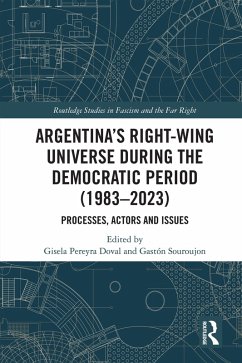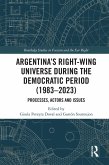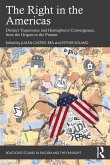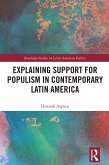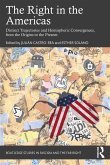Dieser Download kann aus rechtlichen Gründen nur mit Rechnungsadresse in A, B, BG, CY, CZ, D, DK, EW, E, FIN, F, GR, HR, H, IRL, I, LT, L, LR, M, NL, PL, P, R, S, SLO, SK ausgeliefert werden.
"The book, assembling a wide ranging group of contributors, addresses a subject outside the conventional range of studies on modern Argentina and Latin America, one likely to become increasingly salient during the current era of conservative populism." David Rock, University of Cambridge, UK.
"This is the first comprehensive book on the evolution of the Argentine right since 1983, in all its sectors and complexity. Including historical background and approaches ranging from political science, political philosophy, intellectual history, and gender and cultural studies, this timely and fascinating book provides an indispensable road map for understanding the shifts and transformations within the right in this country, as well as how international events and currents have affected it." Sandra McGee Deutsch, University of Texas, US.
"This book is, truly, everything you always wanted to know about the right in Argentina -politically, ideologically, institutionally, and historically- particularly since the return to democracy. It shows how, in so many different fields, two broad traditions of the right, both at odds with popular rule through most of the twentieth century, transformed themselves in a kaleidoscopic way (and in interaction with international trends), adapting to electoral politics. The various manifestations of the right are examined both in opposition and in power, either with Menem's Peronist government or Macri's anti-Peronist government. The contributions, analyzing political parties, social actors, and foreign relations, together constitute a clear must read for anyone with interest in Argentine politics and society." Pierre Ostiguy, University of Valparaíso, Chile.
"This is an important book on a country that has posed a puzzle for many decades. The editors have gathered an impressive array of contributors from a range of disciplines. Their analysis offers an exhaustive and fascinating exploration of how various European ideologies, ideas and doctrines came to be adopted and adjusted to the local context in Argentina to inform political action and government policy. In the process, they provide a wide range of insights that supply some clues as to 'what went wrong' in Argentina and why." Hans-Georg Betz, University of Zurich, Switzerland.

